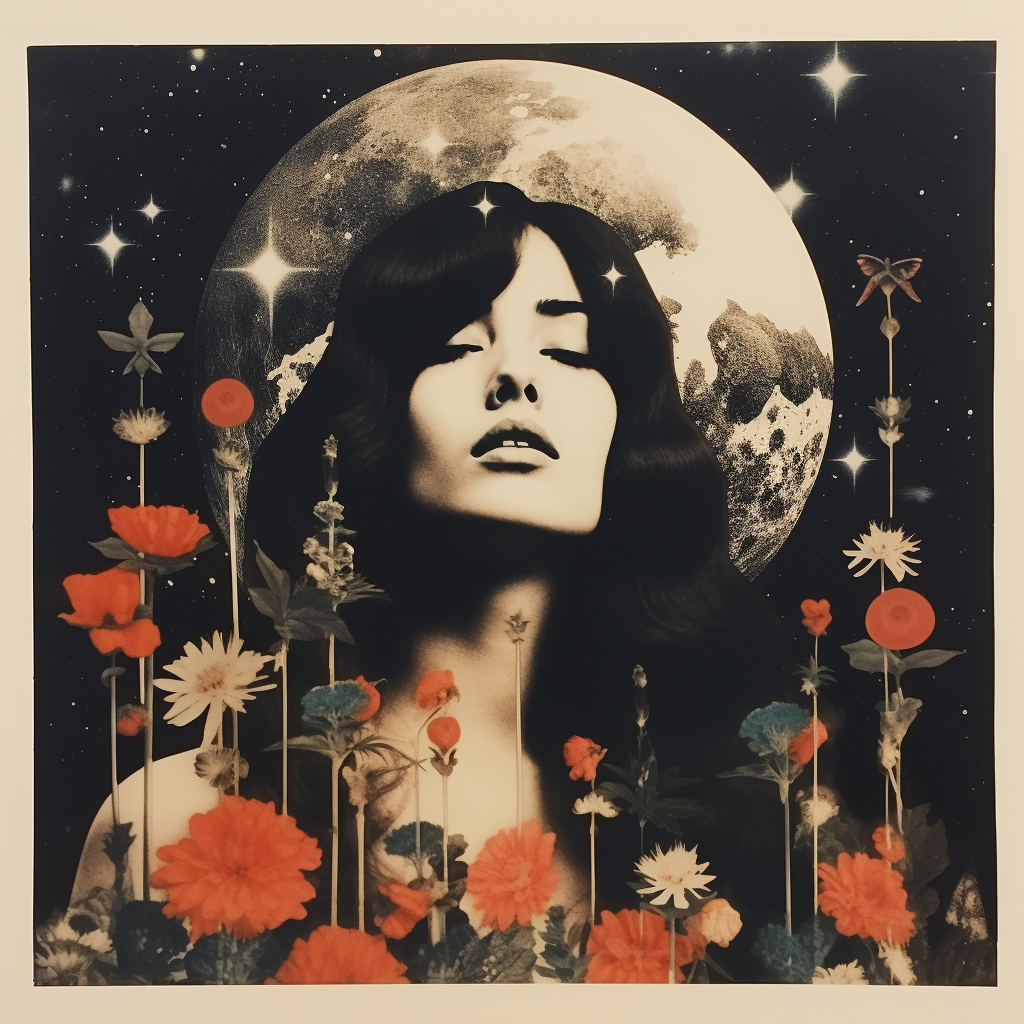 The Moon’s placement in the 7th house is a significant factor in shaping an individual’s approach to relationships and emotional needs. The 7th house in astrology is traditionally associated with partnerships, marriage, and one-on-one connections, making the Moon’s influence in this house particularly impactful on the emotional dynamics within relationships. The Moon’s role as a representation of the unconscious and habitual aspects of the personality is also pertinent here. In the context of the 7th house, this could manifest as an individual who instinctively reacts emotionally to relationship dynamics and may find themselves falling into certain emotional patterns within partnerships. These patterns might be deeply ingrained and can influence how they relate to others on an unconscious level.
The Moon’s placement in the 7th house is a significant factor in shaping an individual’s approach to relationships and emotional needs. The 7th house in astrology is traditionally associated with partnerships, marriage, and one-on-one connections, making the Moon’s influence in this house particularly impactful on the emotional dynamics within relationships. The Moon’s role as a representation of the unconscious and habitual aspects of the personality is also pertinent here. In the context of the 7th house, this could manifest as an individual who instinctively reacts emotionally to relationship dynamics and may find themselves falling into certain emotional patterns within partnerships. These patterns might be deeply ingrained and can influence how they relate to others on an unconscious level.
When the Moon is placed in the 7th house there’s a strong inclination for seeking emotional support and security through interpersonal connections. This individual often relies heavily on others to fulfill their emotional needs, and they may feel a deep sense of comfort and protection when involved in close relationships. The idea of belonging to someone and being cared for becomes crucial to their emotional well-being. Vulnerability is a key theme in their relationships. It suggests that emotional intimacy is of paramount importance, and this person may be highly attuned to the emotional nuances of their partnerships. They might feel a profound need to share their feelings with their significant other and, in turn, expect a similar level of emotional openness in return.
Modern astrology views the Moon as a symbol of the inner self, emotions, and instincts. In the 7th house, these qualities are projected onto the realm of relationships. The individual with the Moon in the 7th house is likely to navigate their emotional landscape through the context of partnerships, seeking a sense of emotional fulfillment and security through the close bonds they form. Understanding the specific zodiac sign in which the Moon is placed provides further insight into the individual’s emotional expression within relationships. Each zodiac sign brings its unique flavor to the Moon’s emotional qualities, influencing how they connect with others and handle the ebb and flow of emotions in the realm of partnerships.
In astrology, the Moon takes the shape of its container, symbolizing its role as a receptacle of experiences on an instinctual, gut level. The Moon, in astrological terms, is symbolic of emotions, the unconscious, and the way one digests life’s myriad experiences. In the context of the 7th house, which governs personal and social relationships, partnerships, and collaborations with others, the Moon’s influence takes on a relational hue. Here, the person becomes a container for emotional experiences related to others, akin to how water assumes the shape of its vessel. The 7th house encapsulates the dynamics of marriage, partnerships, and public interactions—areas where the individual seeks to connect and relate to others.
Individuals with the Moon in the 7th house often display an unconscious dependence on their partners. The Moon, always yearning for a response, finds its emotional fulfillment through the give-and-take of intimate relationships. This hunger for emotional reciprocity may lead them to attract partners who exhibit qualities mirroring the Moon—emotional, caring, or even moody. The inherent need for emotional support and a sense of belonging can sometimes manifest as a tendency to marry young. The individual may seek the security and emotional fulfillment that a committed relationship provides, often unconsciously drawn to partners who offer a nurturing and protective presence. This can create a dynamic where the partner may take on a caretaking role, potentially bordering on overprotection.
The Moon’s reflective nature is also evident in how individuals with the Moon in the 7th house may unknowingly project certain expectations onto their partners. These expectations are rooted in the unconscious, shaping their experiences within relationships. The ebb and flow of emotions in partnerships become a vital aspect of their personal narrative, and they may find comfort and security in the mirrored emotional responses of their significant others.
The Moon’s over-sensitivity and over-adaptability characterize its role as a celestial body that reflects our emotional nature. In the realm of relationships, this can translate into a heightened responsiveness to the needs of others, often at the expense of one’s own emotional well-being. The Moon, as a symbol of the instinctual and emotional self, plays a significant role in shaping our approach to connections with others. When the Moon is influenced by difficult aspects, such as challenging angles with other planets, it can introduce delays and hesitations in entering relationships. These aspects may bring about a more cautious or reserved attitude, as the individual grapples with internal conflicts or emotional challenges. This cautiousness may stem from past experiences, childhood conditioning, or other factors that have left an imprint on the individual’s emotional landscape.
The planets in aspect to the Moon offer additional layers to the understanding of an individual’s emotional responses and relationship dynamics. These planetary influences describe the nuances of childhood conditioning and shape the instinctive reactions to life’s experiences. For instance, a Moon in challenging aspect with Saturn may indicate a sense of emotional restraint or a tendency to approach relationships with a sense of duty and responsibility. On the other hand, a harmonious aspect with Venus might suggest a more naturally affectionate and harmonious emotional expression.
Furthermore, the Moon’s association with the mother in astrology adds a layer of complexity to the dynamics of relationships. The mother’s influence, both positive and challenging, can significantly impact an individual’s emotional patterns and preferences in choosing a marital partner. The qualities associated with the mother may be unconsciously sought after or avoided in relationships, shaping the individual’s preferences and expectations.
The Moon in the 7th house not only influences personal relationships but also extends its emotional sensitivity to public opinion and recognition. Individuals with this placement often find a deep sense of belonging and emotional fulfillment when they are in the public eye. Their connection with the public can be so strong that it becomes a significant aspect of their identity, almost as if they are “married” to the public. For these individuals, the audience becomes a kind of partner, and the approval and acceptance of the public can have a profound impact on their emotional well-being. The public arena is where they may truly feel at home, and they may invest a considerable amount of emotional energy in maintaining a positive relationship with their audience. This can lead to a strong ability to please others, as they are intuitively attuned to the emotional needs and expectations of their public.
The emotional fulfillment and receptivity to others in relationships are influenced by the aspects formed by the Moon. Well-aspected Moons in the 7th house suggest that personal relationships, as well as the connection with the public, are emotionally satisfying. These individuals may naturally navigate the ebb and flow of emotions within partnerships, finding a harmonious balance. On the other hand, if the Moon forms challenging aspects, the emotional landscape of these individuals may be more tumultuous. The dynamics of partnerships, both personal and public, can be subject to change and flux. Emotional highs and lows within relationships may be more pronounced, reflecting the ebb and flow of the Moon’s phases. The individual may experience challenges in maintaining stability in relationships, both on a personal and public level.
The craving for affectionate gestures, sympathy, and an understanding partner is a hallmark of the Moon in the 7th house. These individuals seek emotional support and understanding in their relationships, and they thrive in partnerships where there is a reciprocal exchange of care and empathy. The responsiveness to the emotional needs of others extends not only to personal relationships but also to the broader public sphere, where their ability to connect emotionally can contribute to their success and fulfillment.

